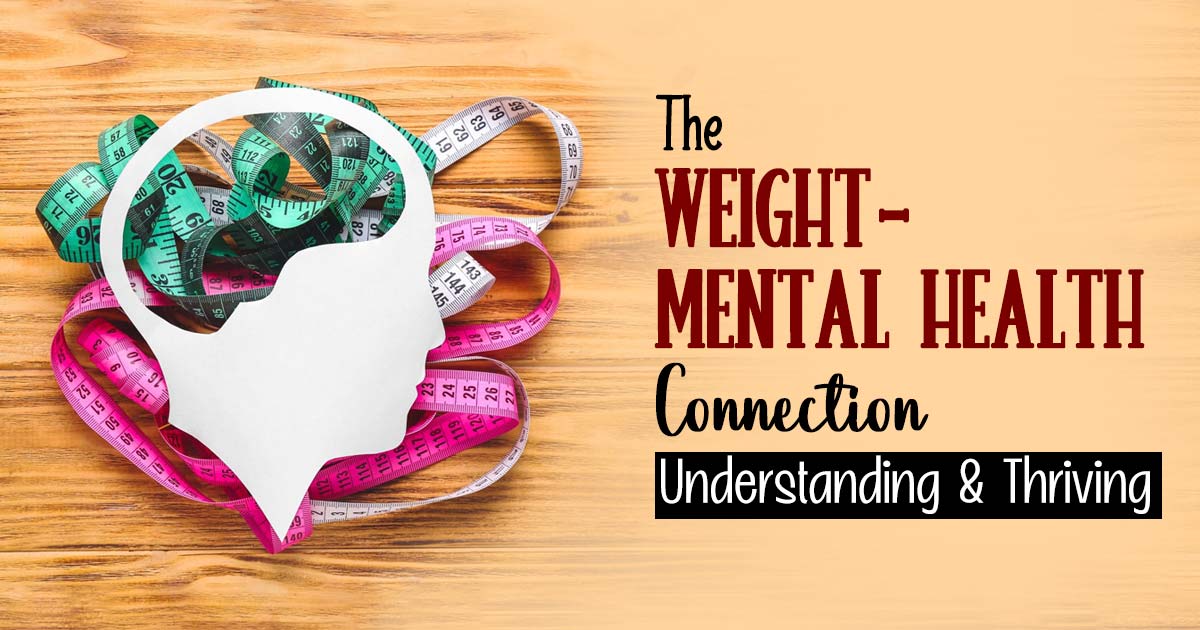Weight loss is often associated with physical health benefits, including reducing the risk of various medical conditions. However, the positive impact of weight loss extends beyond the physical realm; it can significantly boost mental health and overall well-being.
In this essay, we will explore the multifaceted connection between weight and mental health, focusing on how shedding excess pounds can contribute to improved emotional and psychological well-being.
The Link Between Weight And Mental Health
Before delving into the ways weight loss can enhance mental health, it’s essential to understand the link between the two. Excess weight and obesity are frequently accompanied by various physical health issues, such as heart disease, diabetes, and sleep apnea.
These physical conditions can contribute to mental health problems, including depression and anxiety. Furthermore, societal stigmatization and negative body image can lead to low self-esteem and, in turn, have detrimental effects on mental health.
Studies have shown a strong correlation between obesity and depression. Excess weight can lead to an increased risk of developing depression due to biological, psychological, and social factors. Biological mechanisms include inflammation and hormonal imbalances associated with obesity, which can affect mood regulation.
Psychologically, the stigma and discrimination faced by individuals with obesity can contribute to low self-esteem and depression. Socially, obesity can lead to social isolation and reduced physical activity, both of which are associated with an increased risk of depression.
Excess weight is also linked to heightened anxiety levels. The psychological and emotional stress associated with obesity, such as social stigma, body dissatisfaction, and low self-esteem, can contribute to anxiety disorders. Additionally, obesity-related health issues, such as sleep apnea, can disrupt sleep patterns, leading to chronic fatigue and heightened anxiety.
Weight Loss And Improved Mental Health
One of the most profound ways weight loss can boost mental health is by enhancing self-esteem and self-confidence. Losing weight can help individuals feel more in control of their lives and their bodies. As they achieve their weight loss goals, they gain a sense of accomplishment and pride, which can have a positive impact on self-esteem. Increased self-confidence can empower individuals to face challenges and make positive changes in their lives.
Weight loss has been shown to reduce the risk and severity of depression and anxiety. As individuals shed excess pounds, their physical health improves, reducing inflammation and hormonal imbalances that contribute to depression. Additionally, a healthier body weight often leads to better sleep quality, reducing the risk of anxiety-related sleep disturbances.
Weight loss can lead to a more positive body image, which is crucial for mental health. Individuals who lose weight often feel more comfortable in their own skin and are less likely to experience body dissatisfaction. This improved body image can lead to greater self-acceptance and a reduction in the risk of depression and anxiety related to negative body image.
Weight loss can also improve social engagement, which has a direct impact on mental health. As individuals become more physically active and confident, they are more likely to participate in social activities and form meaningful relationships. Social connections and a support system can act as protective factors against depression and anxiety.
The Role Of Healthy Lifestyle Changes
The mental health advantages of weight loss go beyond mere numbers on the scale; they stem from the positive lifestyle changes associated with the process. Maintaining balanced nutrition is vital for improved mental well-being, as it provides essential nutrients supporting mood regulation and cognitive function while stabilizing blood sugar levels to reduce mood swings.
Regular physical activity, a cornerstone of weight loss, releases endorphins, enhancing overall psychological well-being and managing weight. Practicing mindful eating during weight loss fosters a healthier relationship with food, reducing emotional eating and promoting mental well-being.
Overcoming challenges and setting realistic goals requires professional guidance, such as dietitians or psychologists, to develop a personalized, sustainable weight loss plan and receive emotional support. Focusing on non-scale victories, like increased energy, improved sleep, fitness, and self-esteem, maintains motivation and supports positive mental health.
Practicing self-compassion acknowledges that weight loss journeys can be non-linear and involve setbacks, emphasizing the importance of being understanding and kind to oneself, as progress isn’t solely determined by the scale’s numbers.


